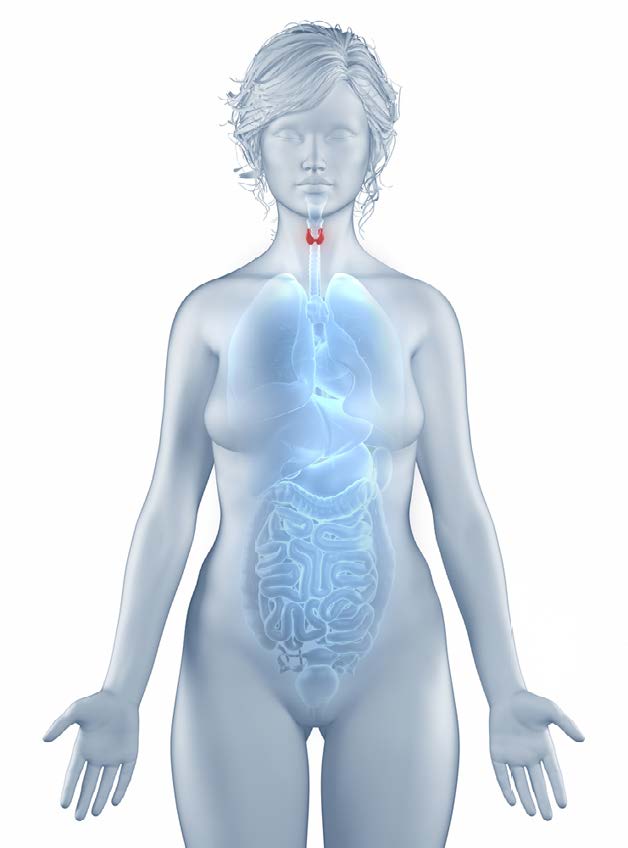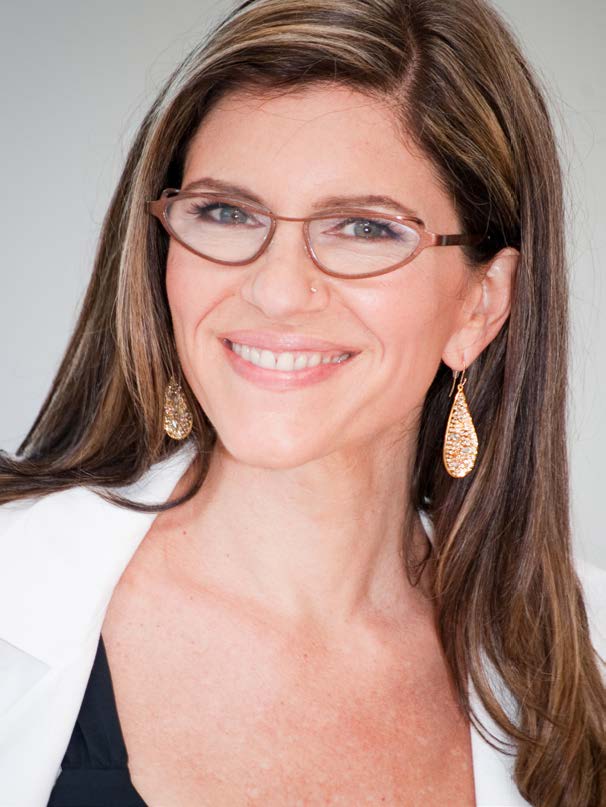
Dr. Sara Gottfried, Harvard-educated physician, speaker and author of The Hormone Cure, has been dedicated to practicing and helping women feel at home in their bodies
I recently interviewed Dr. Sara Gottfried, author of The Hormone Cure on how to reclaim balance, sleep, sex drive, and vitality naturally with the Gottfried protocol. Here is what she had to say about achieving hormone balance.
Dr. Mache Seibel: I’ve been reading your book, The Hormone Cure. It’s a really nice blend of serious science with a holistic approach because you combine the traditional allopathic or Western medicine approach with a combination of yoga and a lot of meditation and a whole host of things. Briefly, how did you get started with this approach?
Dr. Sara Gottfried: I came to it mostly out of necessity. I was one of those stressed out moms in my 30s, working hard, burning the candle at both ends. I struggled with premenstrual syndrome (PMS), with low sex drive, and I was practicing what I would call McMedicine at the time. I think you know what that is.
Dr. Seibel: Yup, Doc in the box (like McDonald’s).
I discovered that I had a problem with cortisol, estrogen and thyroid. Then I offered my findings to the next 10,000 patients I took care of.
Dr. Gottfried: I just felt too young to feel so old. I went to my primary care physician and I was offered the antidepressant Prozac and I can tell you it was a defining moment because I realized you’re treating the problems that women face with exactly the wrong things.
Dr. Seibel: Treating the fever with the Tylenol instead of figuring out what caused the fever.
Dr. Gottfried: Right! I don’t think masking the symptoms with the latest antidepressant is going to get you a cure. But figuring out the root cause of why you feel like crap really makes a difference. I had a hunch at that time that my problem was my hormones and it was spot on. What I discovered is that I had a problem with cortisol, estrogen and thyroid. Then I offered that to the next 10,000 patients that I took care of and that’s really what led to me write The Hormone Cure.
Dr. Seibel: You were the doctor but you were also a patient and you were experiencing something that many women experience, not only medical professionals, but also women who are lawyers, engineers, or moms trying to take care of their family and parents and kids all at the same time – if you burn the candle at both ends, you run out of gas.
Dr. Gottfried: You got it. I don’t think that collapsing in bed at the end of the day should be the new normal. I really think that we need to upgrade our expectations about what it’s like as we get older. I’m sure you agree.
 Dr. Seibel: Yes! If we’re lucky, we’re going to live a long life, but we want to also live a happy life. We don’t want to live a shorter life that just seems long. At some point, your body’s mechanism for keeping you feeling well enough to function, fails; and you start to feel stressed or ill. What are the signs that things are going sour for you?
Dr. Seibel: Yes! If we’re lucky, we’re going to live a long life, but we want to also live a happy life. We don’t want to live a shorter life that just seems long. At some point, your body’s mechanism for keeping you feeling well enough to function, fails; and you start to feel stressed or ill. What are the signs that things are going sour for you?
Dr. Gottfried: There are a number of important signs. I’ll share some of the ones that I experienced back in my 30s. I’m 46 years young now. When I was in my mid-30s I had this feeling that I was constantly running from one task to the next. I felt a weird combination of being wired but tired. I also struggled with my sleep. It was hard for me to wind down. I’ve got a couple of kids and when they went to bed by about 8:30 or 9 p.m. I would often get a second wind. I would start checking my emails, and before i knew it, it was midnight and I had to get up at six.
That’s what it looked like for me. For other people, it can make PMS worse. They can have screaming, irritability, memory lapses, brain fog; your belly might grow a muffin top, especially if cortisol is high. Cortisol is a stress hormone. You can have skin problems, bone loss, high blood pressure, sugar cravings. In fact that’s one of the top three symptoms that I see in my patients who work with me online and see me in the practice.
Dr. Seibel: What kind of skin problems do you notice?
Dr. Gottfried: What I’m talking about here is really thin skin. You know sometimes both metaphorically and also physiologically. Cortisol really affects your skin. As we get older we want our skin to look great, and one of the best ways to take care of your skin is to keep cortisol (that stress hormone) in the Goldilocks position of not too high, not too low.
One of the best ways to take care of your skin is to keep cortisol (that stress hormone) in the Goldilocks position of not too high, not too low
Dr. Seibel: I love the way you’re phrasing things and it’s certainly making it easy to understand. I want to ask you about when you draw a cortisol blood test. Cortisol is a hormone with a diurnal pattern; high in the morning and lower throughout the day. Most of the times when you get a cortisol test, a doctor would like you to come in first thing in the morning. How do you deal with that?
Dr. Sara Gottfried: You’re absolutely right; there is a pattern to cortisol. When I think about cortisol, I am a big fan of using questionnaires to really understand my client’s experience. So, in my book, I have a 122- item checklist that people can use to figure out the root cause of why they have symptoms. If you want to take a free and shorter version of the questionnaire in Chapter One of my book, you can go to www.thehormonecurebook.com/quiz. Now, in terms of measuring, I start off with an 8:00 a.m. blood cortisol test and not a saliva test because blood testing is the language of conventional doctors. I want to have more bridges with conventional doctors than less.
Sometimes it’s helpful to test your cortisol level at four different points during the day, such as before breakfast, lunch and dinner, and before you go to bed. So, that’s a classic 4-point cortisol test that clients can actually order on their own now.
Dr. Seibel: Where do women get that test on their own and while you have the needle in her vein, what other tests would you order?
 Dr. Gottfried: In terms of what laboratories, an example is www.mymedlab.com, you can directly order your own blood test there. You can also go to www.CanaryClub.org and order some of these tests. What should you do when that needle is in your vein…I’m a fan of looking at certain hormones according to age. I broke this down in my book quite a bit more, but here’s the basic outline.
Dr. Gottfried: In terms of what laboratories, an example is www.mymedlab.com, you can directly order your own blood test there. You can also go to www.CanaryClub.org and order some of these tests. What should you do when that needle is in your vein…I’m a fan of looking at certain hormones according to age. I broke this down in my book quite a bit more, but here’s the basic outline.
I think it’s important to start with the hormones that move the needle the most in terms of how women feel day-to-day, how consistent their energy is, their mood, their sex drive and just feeling vital. I think of those as being cortisol, estrogen imbalance with progesterone, and thyroid. So, I’d like to call these “the hormonal Charlie’s Angels” – cortisol, estrogen, and thyroid.
Dr. Seibel: Which thyroid hormones?
Dr. Sara Gottfried: Well, to break it down a little further, what I usually recommend for a screening test is TSH (thyroid-stimulating hormone) and also Free T4 and Free T3. There’s some debate about those and how valuable they are; I find for 40 plus women that those are valuable.
I think of hormones as text messages in your body; they basically tell your organs what to do
Dr. Seibel: OK. You’re feeling fatigued, a little short-tempered, your skin isn’t so good, you don’t sleep well, you’re revved up, you overreact. So, you’re going to be testing these various hormones – the cortisol, the TSH, and the estrogen and the progesterone, what other things should you be looking into? What other symptoms might you have? How do women approach this with their doctor?
Dr. Gottfried: A great question. I like to look at a few other hormones; it kind of depends on what your issues are. So, for women who are trying to lose weight, for instance, that’s where thyroid becomes really important, as well as, how you were dancing with a few other hormones such as insulin and leptin. So, I think of hormones as being these text messages in your body, they basically tell your organs what to do. They drive what you’re interested in, they determine how fast you burn through calories, how fast or slow your metabolism is. So for a woman who’s got a problem with weight – thyroid, insulin, leptin, and I’d add to that list, cortisol, testosterone and the precursor to testosterone, which is called DHEA.
For women who are struggling with their mood, my list might be a little different. I still would look at those Charlie’s Angels – cortisol, estrogen and thyroid. We know 50% of people with depression have high cortisol, 20% of people with depression have low thyroid. So, it really depends on what your issues are in terms of which labs to order.
Dr. Seibel: So you’re looking at the entire person and what categories are affected. It could be your energy, it could be your temperament, it could be your sleep, it could be your weight. You could just be off in terms of how you’re feeling. And based on that, you’re going to get appropriate blood test and get some understanding of how the body is communicating with and how it’s regulating itself. That gives you the basis for understanding why and where it’s out of balance so that you can offer a hormone cure. To hear the entire interview, click here.






